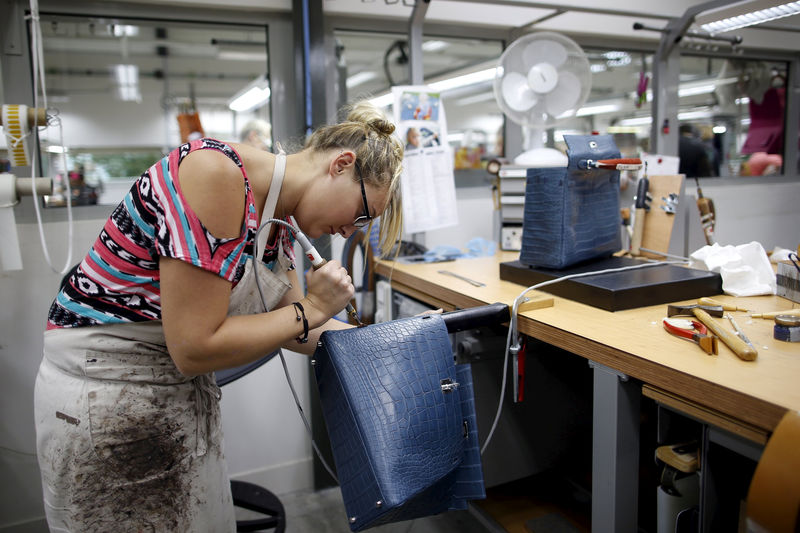Investing.com’s stocks of the week
By Jonathan Cable
LONDON (Reuters) - Euro zone manufacturing activity expanded at its weakest rate in over two years in November as new orders contracted for a second month, further evidence the bloc's economic growth is past its peak, a survey showed.
Policymakers at the European Central Bank are due to draw a line under their 2.6 trillion euro asset purchase program at the end of the year and the survey will likely make disappointing reading.
IHS Markit's November final manufacturing Purchasing Managers' Index fell for a third month, coming in at 51.8 from October's 52.0, although above a flash reading of 51.5 and still exceeding the 50 level separating growth from contraction.
But that was its lowest level since August 2016 and an index measuring output, which feeds into a composite PMI that is seen as a good guide to economic health, stumbled to 50.7 from 51.3 - its lowest since mid-2013. The preliminary estimate was 50.4.
"November's PMI data underscore the extent to which manufacturing conditions have become more challenging, indicating that production could act as a drag on the euro zone economy in the fourth quarter," said Chris Williamson, chief business economist at IHS Markit.
That calls into question the findings in a Reuters poll last month which indicated euro zone growth would bounce back to a faster pace this quarter. [ECILT/EU]
"Hopes that the soft patch may prove short-lived are countered by business optimism about prospects for the year ahead remaining among the gloomiest seen since the sovereign debt crisis in 2012, suggesting companies are bracing themselves for further weak demand in the coming months," Williamson said.
With new orders falling for a second month, factory managers don't see any pick up soon and optimism remained low. The future output index only nudged up to 56.3 from a near six-year low of 56.1 in October.
The darker outlook is linked to a U.S.-led trade war with China, which economists say is damaging to global growth, and intensifying political uncertainty in the currency bloc, IHS Markit said. [ECILT/US]
